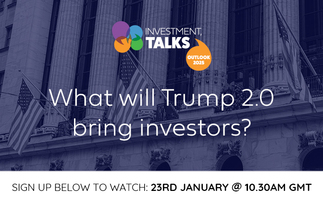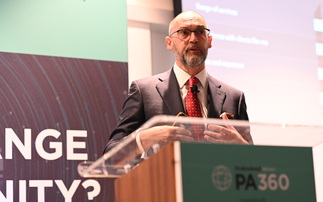
After languishing near zero for over a decade, US interest rates have risen at the fastest pace in modern history. It's a tightening policy that's been mirrored by central banks around the world.
For now, financial markets appear remarkably unaffected. Labour markets remain buoyant, economies are still growing and equity markets have rebounded strongly from their October 2022 lows.
T. Rowe Price's fixed income investment professionals believe things are set to change. During Free Talk, a biannual Fixed Income Webinar, they believed we are likely witnessing a classic lag between central bank policy action and its after-effects.
And as signs of recession begin to appear, they went on, it's time to add duration to a fixed income portfolio.
We are firmly in the neighbourhood of policy errors
According to Arif Husain, Head of International Fixed Income and Chief Investment Officer, Fixed Income at T. Rowe Price, central banks may already have raised rates too far in their quest to quell inflation.
"We are now firmly in the neighbourhood of policy errors," Husain shared.
Central banks are looking backwards: their models for forecasting inflation haven't worked. I worry that they are now likely to overtighten policy," he said.
There are other factors adding to the risk of a market accident, said Husain.
First, investors are too complacent about the possibility of rising defaults. Second, the energy supply outlook is still uncertain as a result of the Russia/Ukraine war. Third, since the global financial crisis a lot of leverage has shifted from bank balance sheets into the shadow banking system, where it's harder to monitor and control.
Meanwhile, said Husain, the monetary stimulus that was added by central banks in late 2022 and early 2023—in response to the UK pension fund crisis and the failure of several US regional banks—is beginning to wear off.
"Our proprietary indicator shows all the stimulus in the system," said Husain. "It combines monetary policy, fiscal policy and what banks are doing. In the early part of this year, we saw a big upturn in stimulus.
But now our stimulus indicator is starting to roll over due to the lagged effect of interest rate rises. We now have all the conditions for a rising default cycle."
Webinar replay - Free Talk - The True Cost of Capital
Hosted by Ritu Vohora, joined by Arif Husain, Mike Della Vedova, Sheldon Chan and Blerina Uruçi discussed the implications of the rising cost of money on the real economy and bond markets across regions and sectors.
This post was funded by T. Rowe Price
Important Information
For professional clients only. Not for further distribution.
This material is being furnished for general informational purposes only. The material does not constitute or undertake to give advice of any nature, including fiduciary investment advice, and prospective investors are recommended to seek independent legal, financial and tax advice before making any investment decision. T. Rowe Price group of companies including T. Rowe Price Associates, Inc. and/or its affiliates receive revenue from T. Rowe Price investment products and services. Past performance is not a reliable indicator of future performance. The value of an investment and any income from it can go down as well as up. Investors may get back less than the amount invested.
The material does not constitute a distribution, an offer, an invitation, a personal or general recommendation or solicitation to sell or buy any securities in any jurisdiction or to conduct any particular investment activity. The material has not been reviewed by any regulatory authority in any jurisdiction.
Information and opinions presented have been obtained or derived from sources believed to be reliable and current; however, we cannot guarantee the sources' accuracy or completeness. There is no guarantee that any forecasts made will come to pass. The views contained herein are as of the date noted on the material and are subject to change without notice; these views may differ from those of other T. Rowe Price group companies and/or associates. Under no circumstances should the material, in whole or in part, be copied or redistributed without consent from T. Rowe Price.
The material is not intended for use by persons in jurisdictions which prohibit or restrict the distribution of the material and in certain countries the material is provided upon specific request.
It is not intended for distribution to retail investors in any jurisdiction.
This material is issued and approved by T. Rowe Price International Ltd, 60 Queen Victoria Street, London, EC4N 4TZ which is authorised and regulated by the UK Financial Conduct Authority. For Professional Clients only.
© 2023 T. Rowe Price. All rights reserved. T. ROWE PRICE, INVEST WITH CONFIDENCE, and the bighorn sheep design are, collectively and/or apart, trademarks or registered trademarks of T. Rowe Price Group, Inc.














